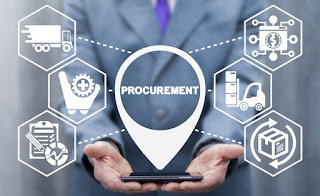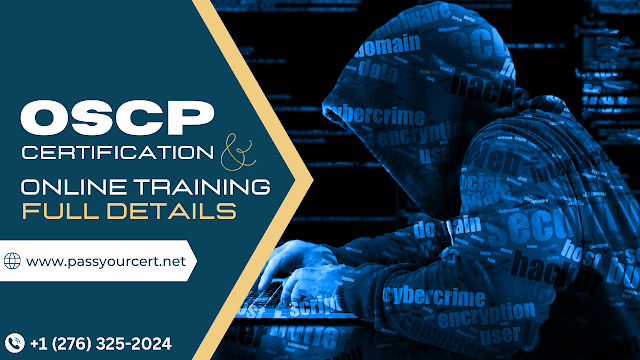Sustainable Procurement Specialist: Key Responsibilities and Skills
As environmental concerns continue to rise globally, Procurement Specialists play an increasingly critical role in advancing corporate sustainability. A shift is occurring from traditional cost-driven procurement methods to sustainable strategies, which not only emphasize financial savings but also minimize ecological footprints. Sustainable procurement involves choosing suppliers and products that align with environmental, ethical, and social criteria, thereby fostering long-term benefits for both companies and society. In this comprehensive guide, we explore how procurement professionals can lead sustainability efforts, navigate the complexities of eco-friendly procurement, and ensure business success.
The Shift from Cost-Centric to Value-Oriented Procurement
Procurement specialists must move beyond price-based decision-making towards a Total Cost of Ownership (TCO) approach. TCO assesses not just the initial purchase cost but the long-term economic, social, and environmental impacts of a product or service. It’s imperative for procurement teams to adopt a broader view that includes the following considerations:
- Environmental Impact: Evaluate how a supplier’s manufacturing processes, materials, and energy use affect the planet.
- Supplier Ethics: Assess labor conditions, fair trade practices, and adherence to ethical sourcing standards.
- Life Cycle Analysis: Factor in maintenance, disposal, and potential recyclability of purchased products.
By integrating TCO into procurement decisions, companies can reduce waste, ensure ethical supplier practices, and foster long-term profitability.
Key Steps in Sustainable Supplier Selection and Onboarding
Selecting and onboarding eco-conscious suppliers requires an analytical, yet collaborative approach. The process entails assessing suppliers’ sustainability credentials and integrating them into your organization’s procurement operations. Here’s a structured pathway:
- Establish Sustainability Criteria: Define sustainability benchmarks, such as ISO 14001 or Fair Trade certifications, to ensure alignment with your goals.
- Conduct Supplier Audits: Perform thorough evaluations of suppliers’ environmental practices, from energy usage to waste management.
- Collaborate for Continuous Improvement: Set up regular communication channels to monitor supplier performance and work together on enhancing sustainability practices.
Utilizing Certifications and Standards for Accountability
Certifications such as ISO 14001, Fair Trade, and the Global Reporting Initiative (GRI) frameworks are pivotal in making procurement decisions more transparent and credible. These standards provide a uniform methodology for assessing the sustainability practices of suppliers and ensure a high degree of accountability. Moreover, they allow for consistent benchmarking, which can drive continuous improvement in supply chain sustainability.
Leveraging Technology for Sustainable Procurement
Digital tools are reshaping the procurement landscape by offering data-driven insights and process optimization. Advanced technologies such as data analytics, artificial intelligence (AI), and machine learning (ML) enable procurement specialists to gain better visibility into supply chains and make more informed decisions:
- Data Analytics: Enables procurement teams to monitor supplier performance, track environmental impact, and identify inefficiencies.
- AI & Machine Learning: Predict future demands, manage inventory efficiently, and optimize procurement to align with sustainability goals.
PPG Industries, for example, used spending analytics to streamline purchasing processes, leading to improved supplier management and significant savings. Additionally, AI helps predict stock requirements, minimizing waste and ensuring resources are utilized effectively.
Engaging Suppliers in Sustainability Initiatives
Supplier engagement is a critical aspect of achieving sustainability goals. Collaboration between procurement teams and suppliers fosters a shared sense of responsibility and mutual growth. Leading companies such as Adidas have exemplified this by continuously auditing suppliers and providing resources for improvement. Here’s how to ensure robust supplier engagement:
- Establish Clear Sustainability Targets: Develop specific, measurable, and achievable sustainability metrics that suppliers must meet.
- Conduct Regular Evaluations: Periodically review supplier performance to ensure adherence to sustainability goals.
- Promote Collaborative Partnerships: Work alongside suppliers to address challenges and celebrate shared successes.
The Financial Advantages of Sustainable Procurement
Sustainable procurement not only benefits the environment but also offers significant financial gains. By optimizing resource usage, reducing waste, and improving energy efficiency, companies can achieve remarkable cost savings. For instance:
- Cost Reduction: Research suggests sustainable procurement can reduce purchasing costs by 9-16%.
- Increased Revenue: Companies with strong sustainability initiatives often experience enhanced brand reputation, customer loyalty, and market differentiation.
One notable case is a major American retailer, which saved $2.4 million annually by simplifying packaging and an additional $26 million by introducing backup power in delivery vehicles.
Ensuring Regulatory Compliance in Sustainable Procurement
Procurement specialists must navigate a complex regulatory landscape, ensuring that suppliers comply with environmental and ethical standards. This includes adhering to national and international regulations concerning worker rights, environmental protection, and supply chain transparency. Key actions for ensuring compliance include:
- Supplier Audits: Regularly check supplier adherence to environmental and social regulations.
- Ethical Sourcing Guidelines: Ensure suppliers comply with labor laws and uphold human rights throughout their operations.
Failure to meet these standards can result in legal penalties and reputational damage, highlighting the importance of diligent compliance monitoring.
Continuous Improvement Through Training and Development
Sustainability is a dynamic, evolving field. Procurement specialists must stay updated with the latest trends, best practices, and technological advancements. Leading companies such as Unilever and IKEA offer specialized training programs aimed at enhancing their procurement teams’ sustainability expertise. These programs cover:
- Sustainability Standards Awareness: Familiarizing procurement teams with evolving sustainability regulations and frameworks.
- Supplier Risk Assessment: Identifying and mitigating sustainability risks in the supply chain.
- Sustainable Sourcing Strategies: Developing innovative methods to source materials in an eco-friendly manner.
Such training initiatives not only empower procurement specialists but also drive continuous improvements in supply chain sustainability.
Transparent Communication of Sustainability Goals to Stakeholders
Transparency is key to gaining stakeholder trust and avoiding greenwashing accusations. Clear and honest communication regarding sustainability efforts helps build credibility. Companies should:
- Provide Regular Updates: Use sustainability reports to communicate progress towards goals and highlight both successes and challenges.
- Leverage Storytelling: Share real-life examples of sustainability achievements to make the message relatable and impactful.
IKEA exemplifies this by consistently involving stakeholders through transparent reporting and partnerships, solidifying its reputation as a sustainability leader.
Conclusion: The Strategic Importance of Sustainable Procurement
As environmental concerns grow, Procurement Specialists are in a unique position to drive meaningful change within organizations. By adopting sustainable procurement practices, leveraging technology, engaging suppliers, and maintaining transparency, companies can achieve both financial and environmental success. Sustainable procurement is no longer a choice but a necessity for organizations aiming to remain competitive, comply with regulations, and contribute positively to society and the planet.


%20656-0395%20(3).png)

Comments
Post a Comment